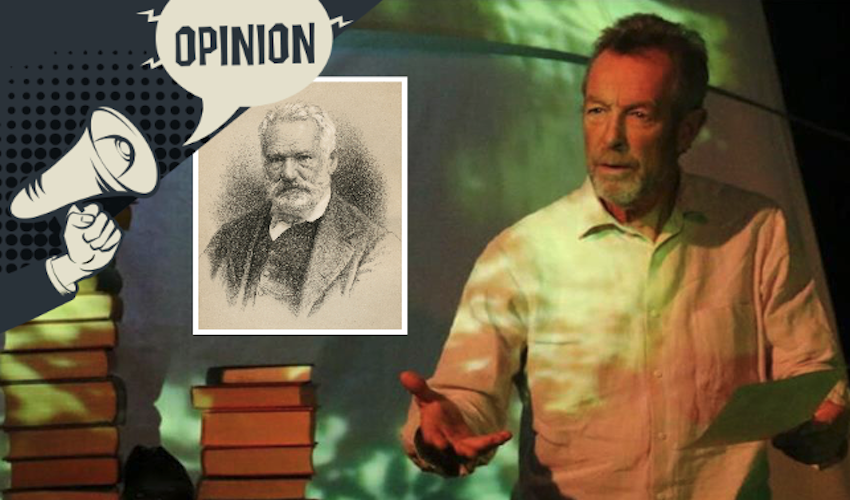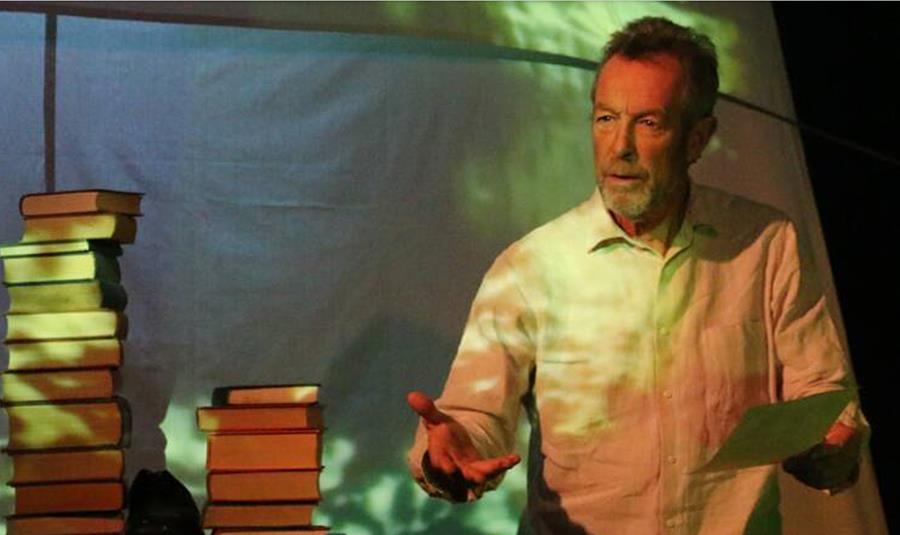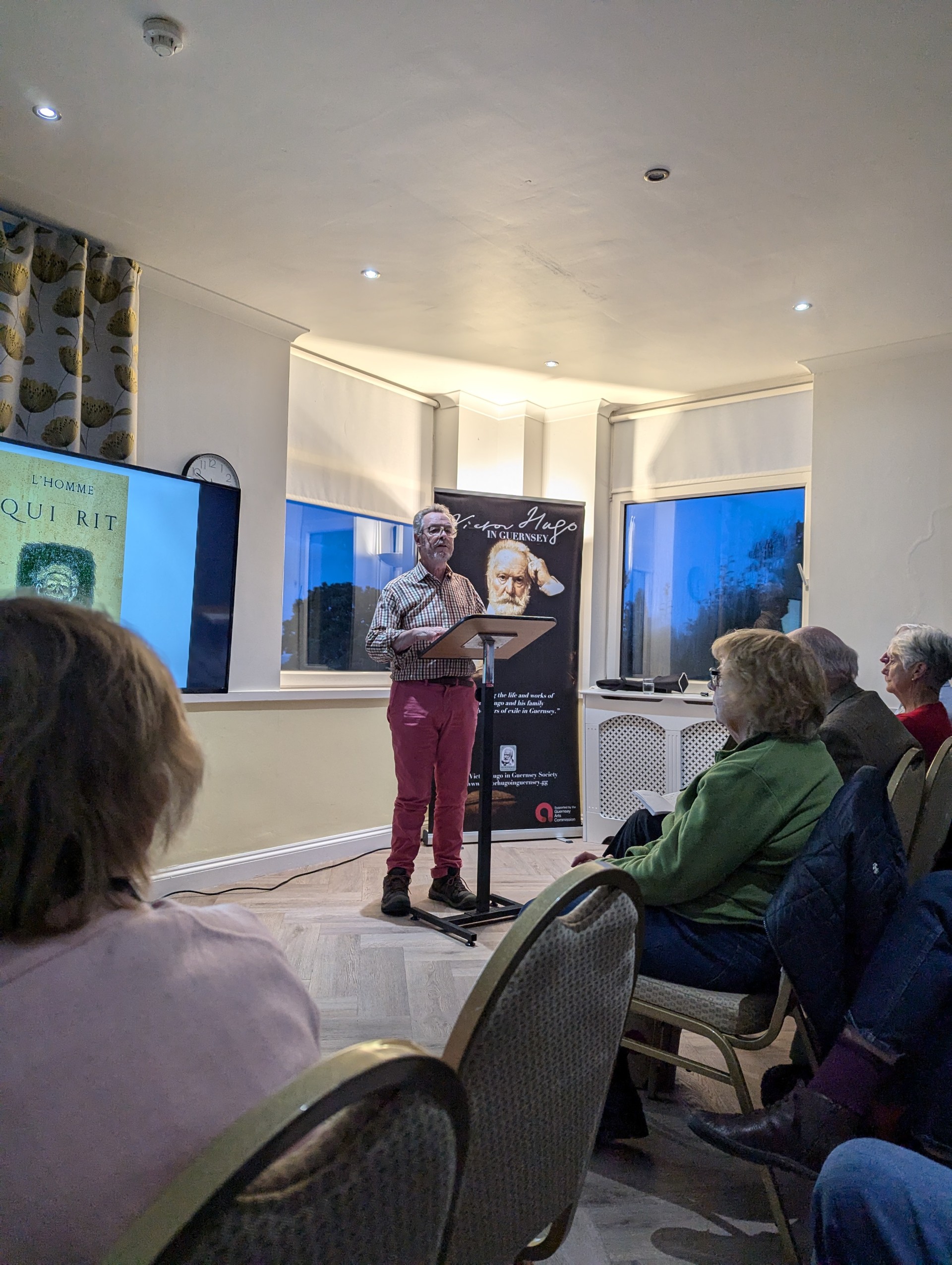


I am a great admirer of Victor Hugo, but his style of writing does take some getting used to. He rarely uses one word where 20 would do, causing one exasperated reader to remark on Amazon “Victor Hugo knows many words, but Brevity is not one of them!”
This verbosity Hugo made into an art form, and he is credited with creating the longest sentence in French ever published – 823 words to be precise.
In amongst his stylistic idiosyncrasies, however, are fabulous plots, and many of his works are considered literary masterpieces.
Creating an adaption of a much-loved novel is a challenging tightrope on which to walk – it is hard to not “throw the baby out with the bathwater” and lose the essence of the book, whilst making it shorter and more accessible for modern audiences, who perhaps have less time or patience with long descriptive passages or diversions from the central narrative.
Enter Patrick Dickson, a Guernsey born actor who is now based in Australia, with a diverse background in TV, stage and film that includes a stint in Home and Away. His previous abridged version of The Toilers of the Sea (still available in both novel and audiobook format) was paired with a brilliant one act play, “The Brainstorm” which he brought to Guernsey in 2019. He described the process of writing and acting in that play as totally immersive and a wonderful experience.

Pictured: Patrick Dickson.
His new adaptation is of a more troublesome novel, L’Homme Qui Rit - The Laughing Man. Patrick admits to having thrown it across the room in disgust at one point – but even after giving up on the project at one stage, he had found his mind going back again to the novel and is now in the process of creating an audiobook and abridged version. He came to speak to The Victor Hugo in Guernsey Society about his progress, and read out some exciting passages of the novel, demonstrating his commitment to keeping the beauty and linguistic themes of the story whilst condensing it into a new format.
L’Homme Qui Rit was published in 1869, whilst Hugo was living in Guernsey. It is perhaps best known as the inspiration for a 1928 silent film that inspired the look of the Batman villain, The Joker. It is to my mind a very strange novel, set mostly in England during the 17th Century, a country that the Francophile Hugo barely knew. At the time that it was published, he was an enormously famous and successful author and poet, having captured the public’s imagination with the much better-received historical novel Les Misérables.
In comparison, L’Homme Qui Rit was not a success.
Hugo was mocked for the convoluted plot, historical inaccuracies and long, meandering digressions about architecture or ship building. Whilst the stories of poverty, child labour and relative morality in Les Misérables seemed timeless and relevant to the modern audience, L’Homme Qui Rit was trying, to make a very different point about the treatment of disabled people, inequality and the British class system. Scattered in amongst the novel though are some brilliant passages and eminently quotable lines – such as “the Paradise of the rich is made by the hell of the poor” – and with time, the book has come to be understood as one of Victor Hugo’s masterpieces.

Pictured: Patrick Dickson speaking at Les Cotils earlier this month.
For local audiences, it does contain some reminders that the book was written in Guernsey – one of the characters is called Fermain, and the Casquets Lighthouse features prominently in the description of a shipwreck. Victor Hugo, even when allowing his imagination to fly far from here, left parts of his adopted home scattered through his work.
Patrick Dickson spoke to a full house in the Cotils on Wednesday September 11th. It was a fascinating talk, and I wish him all the best with his ongoing endeavors to bring Victor Hugo to a new audience. It is yet another reminder of how Victor Hugo continues to inspire new creative works, over 150 years after his book was published.
The Victor Hugo Centre aims to provide a space for the island’s contemporary creative community, to showcase and support new and established artists, to educate and inspire, and promote the island on the global stage. We are grateful for the support of The Victor Hugo in Guernsey Society, who hosted this event.